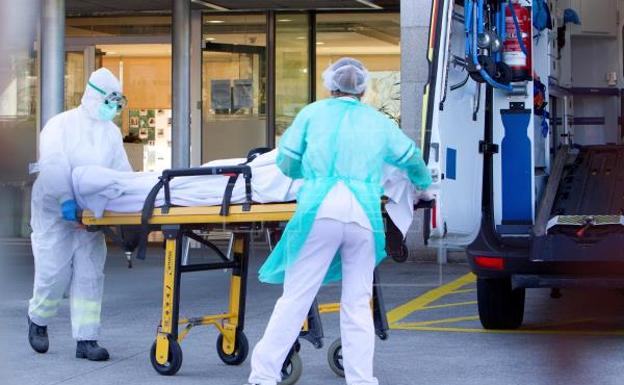Artificial intelligence appears with some frequency in the media, it is one more ally in smartphones, also in homes and it is postulated as a solution in business and industry.
According to IDC, spending on Artificial Intelligence will grow more than 33% in the services segment in the next three years. “Artificial intelligence is being present in companies and in our homes,” says the latest report on Telefónica’s Digital Society in Spain 2019.
“The applications of artificial intelligence are already among us, ranging from sophisticated recommendation algorithms for online purchase of products and services, to improvement in the diagnosis and treatment of cancer,” he adds.
The predictions suggest that within ten years most companies will have incorporated intelligent systems into their business processes, either through their own developments or those provided by third parties. In fact, the venture capital firm MMC Ventures has identified up to 1,600 startups related to this technology throughout Europe.
By sectors, health and wellness is the preferred activity for artificial intelligence, one in five startups uses it and it has been presented as a tool to help beat the covid-19.
During the first wave of expansion of the SARS-CoV-2, this technological tool was presented as one more help, now it takes on special importance again.
Researchers from the Queen Mary University of London together with scientists from IFISC (joint research institute of the University of the Balearic Islands and the Higher Council for Scientific Research) have launched an algorithm capable of optimally reassigning covid patients to ICU in order to try to reduce the stress to which these resources are subjected.
Using data from the British public health system, the NHS, the algorithm, through a mathematical approach and with the help of artificial intelligence, is able to redistribute up to 1,000 ICU patients, ‘who would otherwise probably not receive a adequate intensive surveillance », detail its creators.
At the moment and in the middle of the second wave, the occupancy of ICU beds in Spain is 22.48% in the second wave, but exceeds 35% in the most affected communities.
During the first months of the pandemic, the Basque Health System also made use of artificial intelligence. Sherpa.ai, a more advanced Basque startup in this field, developed a platform for health authorities to estimate the number of ICU beds needed over the course of a week.
Thanks to this tool, they helped hospital logistics and avoided the oversaturation of the centers as happened in other regions. The work of Shepa.ai technology allows calculating the number of ICU beds needed within seven days and analyzes patterns and trends in the evolution of the virus, a fundamental aspect so that health workers can react in time.
Furthermore, it is capable of predicting the number of mild hospitalizations, which would allow, for example, to set up a specific hospital for this type of patient.
Detection through X-rays
Google’s arm in the sector, DeepMind, is already trained to detect early cancer through X-rays, specifically of the lung. A team of researchers has fed a neural network with thousands of images of medical tests with the aim of learning to detect the patterns linked to the presence of a certain type of cancer when it is still too small for the human eye to appreciate. .
In Spain, Francisco Herrera, professor of Computer Science and Artificial Intelligence at the University of Granada, together with the San Cecilio de Granada Clinical Hospital, is working on applying this model to the diagnosis of covid-19.
Chest X-rays with pneumonia and without pneumonia, this is the database where artificial intelligence takes its training. Currently, the model determines by 81% if a patient has coronavirus.
Professor Herrera’s project reaches almost a dozen hospitals to aid in the diagnosis to make it faster and more efficient. However, Herrera says that “the more X-rays, the better the diagnosis.”










